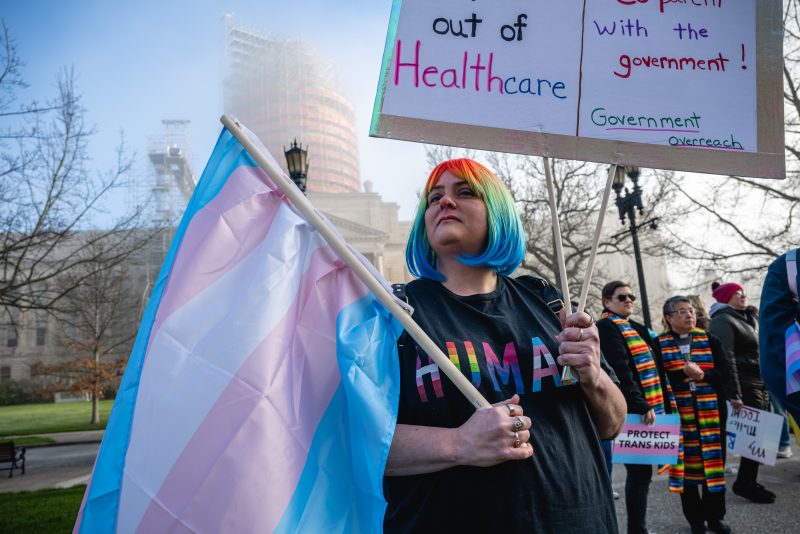
OAN’s Elizabeth Volberding
5:15 PM – Monday, March 18, 2024
The Supreme Court declined to make a decision in the case involving an Indiana couple who lost custody of their teenage child who identifies as a transgender girl. The parents firmly believe that children should be raised according to their biological sex and not the opposite gender.
On Monday, the Supreme Court refused to rule on whether a gender dysphoric child’s parents should lose custody of the adolescent since the couple felt that children should be raised according to their sex.
The teen’s parents filed an appeal, stating that cases like theirs are likely to reoccur “due to developing conflicts between parents and their children concerning gender identity,” but the court rejected it without providing any commentary.
“With increasing frequency, governments run roughshod over parents’ religious beliefs on gender identity, including removing children from parents, favoring certain beliefs in divorce custody disputes, and preventing adoptions,” lawyers for Mary and Jeremy Cox of Anderson, Indiana, explained in their appeal. “These cases are sure to proliferate.”
Indiana officials claimed that the parents did not lose custody because of their religious beliefs, but rather, because treating the teen’s extreme eating disorder was a necessary, medical requirement.
The state informed the court that government action is permitted in “a variety of situations in which even well-intentioned parents find themselves unable to prevent serious harm,” according to a section of Indiana law that is comparable to statutes in almost every state. Indiana further maintained that since the adolescent, who was 16-years-old when taken from the family, is now an adult, the custody dispute is no longer relevant.
In a statement after the Supreme Court’s rejection, Mary and Jeremy Cox referred to their child as “our son” and explained that losing custody of the teen due to their beliefs “will stay with us forever.”
“We can’t change the past, but we will continue to fight for a future where parents of faith can raise their children without fear of state officials knocking on their doors,” the Cox couple stated.
Noting his work in defending parental rights, Indiana Attorney General Todd Rokita, whose office is entrusted with defending state agencies, said that he is “sympathetic” to the parents.
“We always protect parental rights and religious liberty. Neither we nor the Indiana courts believe that the State can remove a child because of a parent’s religious beliefs, views about gender identity, or anything of the sort,” Rokita declared in a statement, adding that the teen’s “extreme eating disorder” was the driving force behind the state’s measures, according to the record.
The case initially began in 2021 when the teen’s “transgender status” was mentioned in two reports of abuse and neglect that the Indiana Department of Child Services received.
According to court documents, one accused the parents of “verbally and emotionally abusing” their child because they “did not embrace the teen’s transgender identity.”
It was not reported whether the teen sent in the complaints or if it was a friend, family member, or someone else.
After the hearings, a judge required that the adolescent receive ED (eating disorder) treatment, participate in family and individual therapy, and be taken out of parental custody. The state withheld its accusations of parental abuse and neglect, mentioning concerns that if the parents were to reclaim custody, the teen’s eating disorder could become worse.
The parents were also told not to bring up transgenderism with their child outside of treatment sessions.
The Cox parents assert that the state had infringed upon their right to free expression, right to raise their child the way they want to, and the right to practice their religion.
“M.C. and J.C. seek only to raise their children according to their religious beliefs and best judgment,” they told the court. “This case is about the state taking a child from fit parents.”
The Indiana Supreme Court decided not to review the issue after the Indiana Court of Appeals took the state’s side.
“The Parents have the right to exercise their religious beliefs,” the appeals court declared, “but they do not have the right to exercise them in a manner that causes physical or emotional harm to Child.”
Stay informed! Receive breaking news blasts directly to your inbox for free. Subscribe here. https://www.oann.com/alerts

